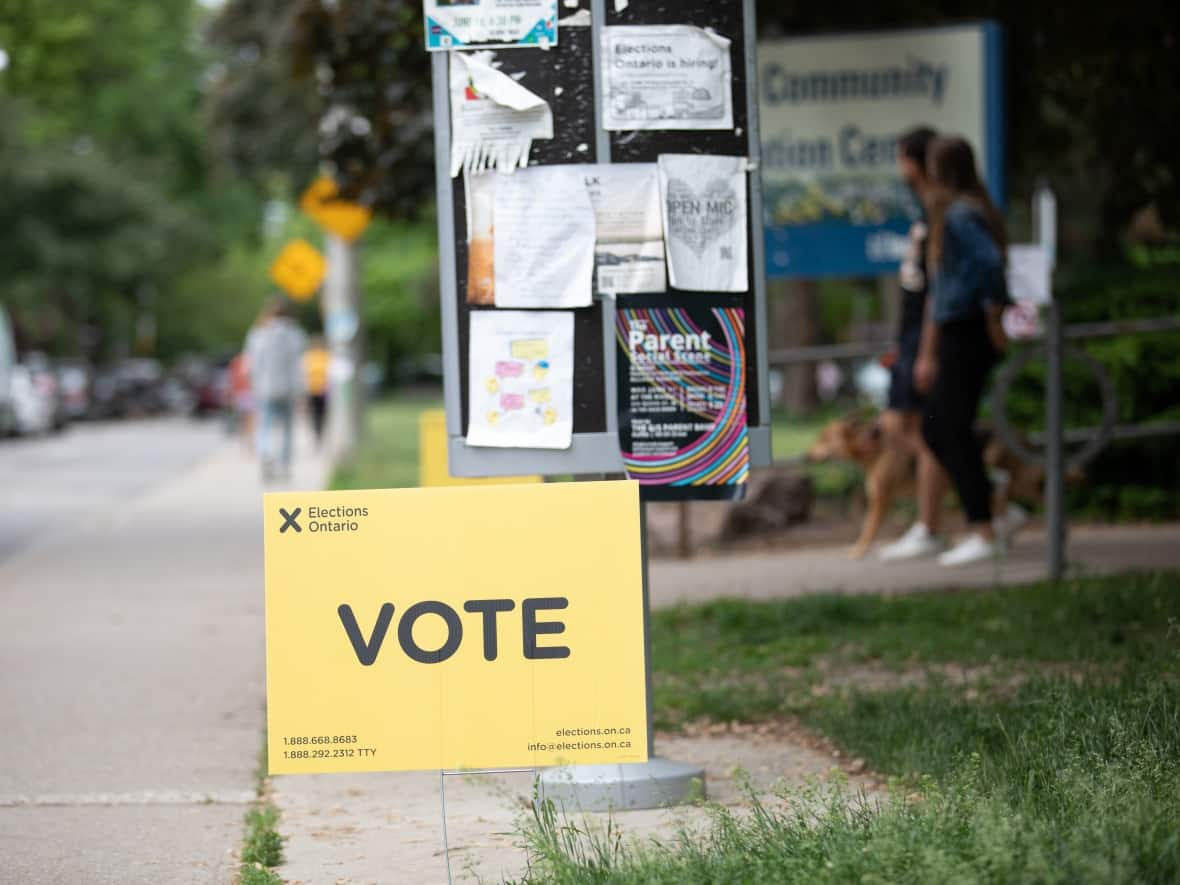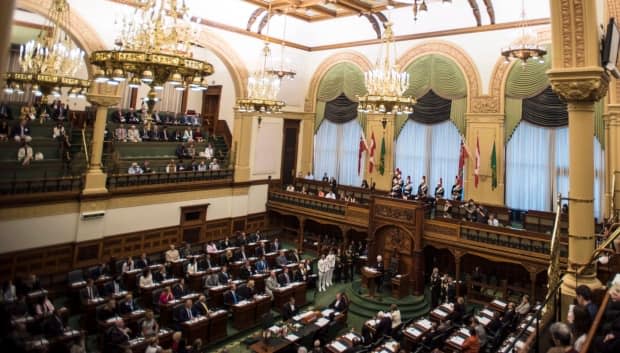Ontario's election watchdog wants opinion polls banned in run-up to voting day

In the wake of record-low turnout for an Ontario election, the province's chief electoral officer is calling for a ban on publishing the results of political polls for the final stretch of the campaign.
The recommendation is one of many in a new post-election report from Elections Ontario.
Under the heading "a call for legislative change," the report recommends disallowing published reports of political polls two weeks in advance of election day
"Political polls have the potential to influence election results," says the report. "The Chief Electoral Officer recommends that no public opinion polling results stating political party favourability ratings be published in the final two weeks before election day."
Voter turnout in the 2022 election — the second straight majority for Premier Doug Ford's Progressive Conservatives — was just 44 per cent, the lowest in Ontario history.
Elections Ontario cites survey data as evidence that polling contributed to the poor turnout.

"Many [survey respondents] lost interest in the election due to early reports of one-sided results," says the report. It says 36 polls were published in the two weeks leading up to voting day on June 2 last year.
Currently in Ontario, news media are only barred from reporting the results of new opinion polls on election day itself.
Elections Ontario also recommends extending the 29-day official campaign period by at least a week.
"Ontario has the largest number of registered voters, yet experiences one of the shortest election calendars in Canada," says the report.
"Deploying materials to 124 electoral districts, accepting an increasing number of nominated candidates and executing a plethora of other time-sensitive deliverables has become increasingly difficult to manage."
Also in the report, chief electoral officer Greg Essensa speaks out against the government's plan to scrap taxpayer-funded allowances to political parties, effective in 2025.

The allowances "ensure an adequate balance between public and private fundraising for political parties and constituency associations," says the report. The payments were introduced in 2017 after Ontario banned corporations and unions from making donations to political parties and candidates.
The amounts are calculated based on the number of votes each party received in the previous election. The PCs are in line to receive nearly $4.9 million in 2023, the Liberal Party just shy of $2.9 million, the NDP a little more than $2.8 million and the Green Party about $710,000.
Voting day on weekend or school holiday
CBC News requested an interview with Essensa on Friday, the day after his report was published, but a media spokesperson said he was not available.
Among his other recommendations:
Hold the election on a day when schools are not in session, such as a weekend or school holiday.
Ontario's fixed-date election law sets voting day for the first Thursday in June. Elections Ontario says schools are essential sites for polling stations and it's more complicated to use them when students are in class. The change "would also provide an opportunity to engage youth to work and participate in the election," says the report.
Include civics education in each year of high school.
Ontario currently requires students take just one half-year civics course, in Grade 10. "More civics education in the senior years of a student's secondary education is particularly important as the majority of secondary students become eligible voters in their graduating year," says the report.
Allow 16- and 17-year-olds to work as poll officials in roles that do not involve issuing ballots.
"This would engage them in the electoral process at an earlier age, while also increasing staffing flexibility,' says the report. Elections Canada and the provinces of Quebec, New Brunswick and Saskatchewan allow people younger than voting age to work the polls.
The report also recommends tweaking some of the rules governing candidate nominations, and empowering the chief electoral officer to fine parties or constituency associations that miss deadlines for filing financial statements.
A spokesperson for Attorney General Doug Downey says the government has received the report and its recommendations are currently under review.


